Discover Two Blokes Trading
Two Blokes Trading

297 Episodes
Reverse
AI, Crypto & The Death of Traditional Finance | Matthew Le Merle | Two Blokes Trading Ep. 17In this episode of Two Blokes Trading, we speak with Matthew Le Merle — Silicon Valley investor, futurist, and co-founder of Blockchain Coinvestors — to explore how AI and blockchain are reshaping the global financial system. With over 25 years of experience and more than 1,000 startups backed, Matthew explains why traditional finance is on the brink of collapse and what will replace it.We discuss how blockchain and artificial intelligence are combining to dismantle outdated infrastructure, from cross-border payments to capital formation. Matthew shares why the current wave of technological innovation isn’t a hype cycle, but a permanent shift to a new digital economic order — and what that means for traders, investors, and policymakers alike.You’ll hear why he believes the real power lies in early-stage innovation, why global crises can accelerate disruption, and how conviction-based investing leads to outsized returns. This is a wide-ranging, high-conviction conversation with one of the most plugged-in voices in Web3 and venture capital.Whether you're navigating markets or building for the future, this episode will change how you think about the next decade of finance.What You’ll Learn in This Episode:Matthew Le Merle explains why the convergence of AI and blockchain is not just changing markets — it’s rewriting the entire global economic playbook. You’ll learn why the old models of value exchange, regulation, and finance are breaking down and how new systems of decentralized infrastructure are emerging to replace them.We break down how investor psychology, hype cycles, and venture capital stages influence innovation, and why the best opportunities often emerge in downturns. Matthew also explores the evolution of digital identity, trust frameworks, and why billions of AIs will soon be transacting with one another using blockchain-based systems that traditional finance can’t support.This episode is your guide to understanding how exponential technologies are converging — and why those who fail to adapt may be left behind. From fund-of-funds strategy to quantum computing and crypto payment rails, this is an inside look at the future of finance from a leader shaping it.Jonathan Farrelly – HostJonathan started his trading journey over 15 years ago, learning from some of the best institutional traders in the world. Over the last 9 years, Jonathan has taught thousands of retail traders how to successfully navigate the financial markets. Jonathan has evolved Two Blokes Trading with new technologies to offer traders a fully immersive experience. His ethos is built on transparency with the goal of helping new and experienced traders reach their financial goals.About Matthew Le Merle:Matthew Le Merle is Managing Partner at Fifth Era and co-founder of Blockchain Coinvestors, one of the world’s most active venture investors in blockchain and AI. Based in Silicon Valley, Matthew has advised companies like Microsoft, Google, and Intel, and led digital innovation practices at top consulting firms.With over 25 years in the tech and finance industries, he’s invested in more than 1,000 startups through early, mid, and late-stage funds — many of which are now unicorns. A frequent speaker and thought leader on digital disruption, Matthew brings a deep understanding of how exponential technologies, decentralization, and network effects are transforming global markets.Matthew’s Website: https://www.blockchaincoinvestors.com/
the ai bubble, retail mania & what comes next for marketsWelcome to Season 3, Episode 16 of Two Blokes Trading. This week’s guest is Harry Melandri, a veteran macro strategist with over 30 years of experience across central banks, hedge funds, trading desks, and global macro research. Harry is now a Senior Advisor and Research Contributor at MI2 Partners (Macro Intelligence 2 Partners), where he helps decode systemic risks using predictive models, historical context, and policy insight.🔗 Visit Harry’s profile at MI2 Partners🎙️ About Harry Melandri• Harry began his career at the Bank of England before moving into senior macro and trading roles at UBS, Deutsche Asset Management, and Aberdeen Asset Management.• At MI2 Partners, he provides institutional clients with macro strategy insights, specializing in global central bank policy, interest rates, and structural market dynamics.• Known for his bold commentary and deep historical perspective, Harry brings a refreshingly candid lens to today's volatile macro environment.🔗 MI2 Partners – Team Page🔎 What to Expect in This EpisodeIn this episode, Harry shares his journey into the financial markets, starting with why he joined the Bank of England straight out of college and what eventually led him to the trading floor. He breaks down the real mechanics of market-making, how liquidity provision actually works, and how those early experiences shaped his macro worldview.We dig into the speculative energy behind today’s markets, the blurred line between hype and innovation in AI, and the role of retail traders in shaping liquidity and volatility. Harry also explains how political agendas, particularly in the U.S. and China, are increasingly driving economic outcomes, and why this moment may be more systemically fragile than 2008.From policy narratives to portfolio action, this is a deep, honest, and timely look at what comes next for markets — and how traders can prepare.🧠 About Two Blokes TradingTwo Blokes Trading is one of the world’s biggest trading podcasts, with over 900,000 listeners and a rapidly growing social media app built for traders. Our platform empowers retail traders with AI-driven tools, real-time sentiment analysis, and expert market insights. We turn complex data like insider trades and global trends into smart, actionable trade ideas once reserved for institutions. With cutting-edge tech and clear education, Two Blokes Trading helps everyday traders move faster, think smarter, and trade like pros.Let me know if you want me to:
The Brutal Truth About Trading: Steve Ruffley reveals the raw, unfiltered reality of life as a trader in today's fast-paced financial markets. In this episode of the Two Blokes Trading podcast, host Jonathan Farrelly sits down with Steve to discuss the lessons that only decades of trading experience can teach. From the early days on institutional floors to trading large size independently, Steve details why most retail traders fail—and what pros really do differently. With sharp takes on scalping, sentiment-driven volatility, and the mindset that sustains trading success, this episode is packed with perspective, strategy, and a dose of hard truth for any trader ready to grow.📢 This episode is sponsored by our partnered broker Forex.com.For more information or to set up an account, click here:https://stonexmarketingpartnerships.ck-cdn.com/tn/serve/geoGroup/?rgid=4&bta=40159CFDs are complex instruments and come with a high risk of losing money rapidly due to leverage. 74% of retail investor accounts lose money when trading CFDs with this provider. You should consider whether you understand how CFDs work, and whether you can afford to take the high risk of losing your money.What You’ll Learn in This Episode:In The Brutal Truth About Trading, Steve Ruffley strips away the myths surrounding pro-level trading and brings you deep into his world. Learn how institutional traders operate differently, why size and speed matter more than ever, and how the mental game separates winners from those stuck on the wrong side of the trade. Steve outlines his three trading styles—scalp, average hold, and full-session day trades—sharing when and how he applies each. He also explains why traders must stop chasing signals and start mastering their own psychology. This episode explores the current volatility-driven market climate and delivers practical, grounded insight you can use—whether you're retail, semi-pro, or somewhere in between.Jonathan Farrelly – HostJonathan started his trading journey over 15 years ago, learning from some of the best institutional traders in the world. Over the last 9 years, Jonathan has taught thousands of retail traders how to successfully navigate the financial markets. Jonathan has evolved Two Blokes Trading with new technologies to offer traders a new fully immersive experience. His ethos has always been based on transparency with the goal to help new & experienced traders achieve their goals.About Steve Ruffley:Steve Ruffley has spent over 20 years in the financial markets, working across institutional trading floors, risk‑management operations and independent trading with his own capital. He is the author of The Pro Retail Trader and The Ruff Guide to Trading, and is known for delivering real-world trading education that bridges the gap between theory and performance. (steveruffley.com)
The Truth About Trading Success Nobody Teaches; explore how trading discipline, painful losses, and decades of experience shaped one of the most respected traders in the game.Steve Burns shares how he transformed early mistakes into a long-lasting edge through rule-based systems, precise risk control, and a mindset focused on compounding small wins. Whether you are new to trading or refining your system, this episode offers critical lessons on what it truly takes to survive and thrive in the markets.Trading discipline is not just a buzzword. It is the defining trait that separates amateurs from professionals. In this episode, Steve Burns reveals how painful drawdowns, decades of real-world lessons, and a strict focus on risk management helped him achieve lasting success in the markets.With nearly 30 years of trading experience, Steve shares his transition from high-risk speculation to a methodical, rules-based approach. He breaks down how compounding small gains can lead to massive results, why position sizing is critical to trader psychology, and how most traders fail before they even learn what matters.What You’ll Learn in This Episode:Core principles of trading discipline and emotional controlHow compounding and small wins drive long-term growthBuilding a system that protects capital and preserves gainsThe role of position sizing in reducing emotional volatilityManaging drawdowns with systematic exitsBacktesting techniques and avoiding data biasTimestamps00:00 – Introduction04:58 – From amateur to professional: learning the hard way10:30 – Compounding: small wins, big future16:20 – Risk control, edge, and protecting profits22:45 – Steve’s watchlist and technical setup30:15 – Backtesting strategies and common mistakes37:10 – Current markets, liquidity, and trader sentiment43:50 – What Steve would do differently48:15 – Final thoughts and adviceAbout Two Blokes TradingTwo Blokes Trading is one of the world's biggest trading podcasts, with over 900,000 listeners and a rapidly growing social media app built for traders. Our platform empowers retail traders with AI-driven tools, real-time sentiment analysis, and expert market insights. We turn complex data like insider trades and global trends into smart, actionable trade ideas once reserved for institutions. With cutting-edge technology and clear education, Two Blokes Trading helps everyday traders move faster, think smarter, and trade like professionals.About Steve BurnsSteve Burns is the founder of New Trader U, a veteran trader, educator, and author of more than 17 books on trading strategy, risk management, and psychology. Since 1995, Steve has helped thousands of traders transition from impulsive to intentional trading through structured systems, backtested strategies, and timeless principles.This episode is sponsored by our partnered broker Forex.com. For more information or to setup an account click the link below.https://stonexmarketingpartnerships.ck-cdn.com/tn/serve/geoGroup/?rgid=4&bta=40159 CFDs are complex instruments and come with a high risk of losing money rapidly due to leverage. 74% of retail investor accounts lose money when trading CFDs with this provider. You should consider whether you understand how CFDs work, and whether you can afford to take the high risk of losing your money. Connect with UsInstagram:
Why the Next Financial Crisis Is Already Here | Michael Howell | Two Blokes Trading Ep. 13In this episode of Two Blokes Trading, we speak with Michael Howell, founder of CrossBorder Capital and author of the “Capital Wars” Substack, to unpack the real driver behind today’s market turmoil: a growing global liquidity crisis. Michael explains why liquidity, not just interest rates, is the engine powering asset prices and why the global economy is now deep into a debt refinancing cycle that could trigger major funding stress.From repo market volatility and Fed balance sheet tightening to rising systemic risk in sovereign debt markets, Michael shares the signals smart traders need to watch and how to trade ahead of the curve. We also explore why gold, Bitcoin, and other inflation hedges are flashing warning signs and what happens when central banks are forced to restart quantitative easing.This is not another macro overview. It is a deep, data-driven discussion on the structural cracks in global liquidity. Whether you are a retail trader or managing larger portfolios, this episode will change how you read the markets.What You’ll Learn in This Episode:Michael Howell explains why global liquidity, not interest rates, is the real driver of financial market trends and why the next crisis may already be unfolding. You will learn how more than 80 percent of capital markets activity is now focused on debt refinancing rather than investment and why this shift increases systemic risk.We explore the mounting pressure in repo markets, the importance of monitoring SOFR spreads, and how reduced liquidity from the Federal Reserve could lead to disruptions in funding markets. Michael also breaks down the risks posed by trade fails, the structural liquidity gap in US bank reserves, and why hedge funds are playing a critical role as marginal buyers of US Treasuries.The episode also examines long-term forecasts for gold and Bitcoin as barometers of monetary risk, and what traders can learn from shifts in central bank behavior. You will come away with a stronger understanding of liquidity cycles, how they differ from traditional business cycles, and how to position yourself before major market turns.Jonathan Farrelly – HostJonathan started his trading journey over 15 years ago, learning from some of the best institutional traders in the world. Over the last 9 years, Jonathan has taught thousands of retail traders how to successfully navigate the financial markets. Jonathan has evolved Two Blokes Trading with new technologies to offer traders a fully immersive experience. His ethos is built on transparency with the goal of helping new and experienced traders reach their financial goals.About Michael Howell:Michael Howell is the founder and CEO of CrossBorder Capital, a London-based research and investment firm specialising in capital flows and global liquidity analysis. With more than 30 years of experience in financial markets, Michael developed a data-driven liquidity research methodology during his time at Salomon Brothers and Baring Securities.He launched CrossBorder Capital in 1996 and has since advised institutional clients, hedge funds, and policymakers around the world. He also authors the Capital Wars Substack, which offers clear, accessible insights on liquidity, macroeconomics, and capital trends. Michael is a regular speaker at financial conferences and is regarded as one of the leading experts on how liquidity drives risk and opportunity in global markets.Micheals Website: https://www.crossbordercapital.comThis episode is sponsored by our partnered broker, Forex.com.Set up your account or learn more here:a...
The Hedge Fund Trader Who Automates Everything is a deep dive into the mindset and methods of Rob Carver, a former institutional trader who left the high-stakes world of Barclays and AHL to build his own fully systematic trading operation. With decades of experience managing risk and deploying billions across global markets, Rob now trades independently using systems he designed to remove emotion, avoid overfitting, and stay adaptable in volatile conditions.This episode explores how Rob went from trading exotic derivatives at Barclays to managing fixed income portfolios at one of the world’s most respected quant hedge funds. He opens up about burnout, walking away from institutional capital, and the freedom and responsibility that come with trading your own money.Listeners will hear how real automation works, how much maintenance systems require, and why simplicity is often a more powerful edge than complexity. Rob also shares strong views on crypto, AI, and the risks of trading technologies that promise too much and deliver too little.This conversation cuts through the noise to focus on what it actually takes to succeed with a systematic, automated approach. Whether you’re a retail trader trying to remove emotion from your decisions or a professional refining your edge, Rob’s perspective offers clarity, discipline, and insight rooted in experience.What You’ll Learn in This Episode:In this episode, Rob Carver breaks down the realities of building and maintaining a fully automated trading system. You’ll learn why simplicity often outperforms complexity, how institutional traders view risk differently from retail traders, and what it means to run a system that makes decisions without constant human interference.Rob explains how he sets up automated processes to handle futures rollovers, monitors price data for anomalies, and decides when, if ever, to intervene. He discusses why he prefers medium-speed systems with month-long holding periods, how he avoids curve fitting, and how he evaluates whether a system is still valid as market conditions change.Listeners will gain insight into the pros and cons of trading with leverage, how to think about diversification across asset classes, and why high-frequency strategies often decay faster than slower, more robust systems. Rob also shares practical views on evaluating strategies using relative performance and alpha, rather than just raw returns.For traders curious about automation, this episode highlights the technical, psychological, and strategic aspects of trading without discretion. Rob also offers candid opinions on crypto and AI, including his concerns about their overhyped role in trading and why true edge still comes from understanding risk, not chasing the latest trend.Whether you're a systematic trader, a discretionary investor considering automation, or simply someone interested in how modern hedge fund techniques work, this episode delivers a rare behind-the-scenes look from someone who has done it all.Rob explains how he sets up automated processes to handle futures rollovers, monitors price data for anomalies, and decides when, if ever, to intervene. He discusses why he prefers medium-speed systems with month-long holding periods, how he avoids curve fitting, and how he evaluates whether a system is still valid as market conditions change.Listeners will gain insight into the pros and cons of trading with leverage, how to think about diversification across asset classes, and why high-frequency strategies often decay faster than slower, more robust systems. Rob also shares practical views on evaluating strategies using relative performance and alpha, rather than just raw returns.For traders curious about automation, this episode highlights the technical, psychological, and...
How Greg Magadini Turned $50k into $1.3 Million Trading Volatility is the mission of Greg Magadini, options trader and Head of Derivatives at Amberdata.With over a decade of experience navigating options markets, Greg has built his reputation on simplifying volatility for traders from retail enthusiasts to institutional portfolio managers. Before Amberdata, he co-founded Genesis Volatility, a pioneering analytics platform for crypto options, where he made professional-grade volatility surfaces and risk tools accessible to everyday traders. His work bridges the gap between traditional options theory and the fast-evolving world of digital assets.Greg’s career has been defined by helping traders understand the language of volatility. From variance risk premiums to the term structure of implied volatility, he translates complex derivatives concepts into practical frameworks traders can apply. A disciplined risk manager himself, Greg has experienced firsthand the emotional challenges of trading including drawdowns, feast-or-famine cycles, and the psychological traps that volatility markets set. He approaches trading as both an intellectual puzzle and an emotional discipline, emphasizing sober decision making, risk awareness, and long-term consistency.Today, Greg’s voice is one of the most respected in crypto options. Whether he is explaining the nuances of zero-day contracts, highlighting hidden risks in crowded trades, or exploring the macro forces shaping volatility markets, Greg brings clarity, context, and candor. For him, trading options is not about chasing lottery tickets. It is about building repeatable edges, managing exposure, and staying in the game when others get shaken out.What You Will Learn in This EpisodeIn this episode, Greg Magadini and Two Blokes Trading dive deep into the mechanics and mindset of volatility trading. Greg explains why options are ultimately insurance contracts, how variance risk premiums provide the real edge, and why term structure is the silent driver of profits and losses.You will learn how to measure realized versus implied volatility, how to think about risk through the Greeks instead of just strike prices, and why path dependency makes options uniquely challenging. Greg also shares his personal approach to dealing with drawdowns, emotional cycles, and the hidden costs of being a full-time trader.For new and seasoned traders alike, this conversation offers a roadmap to navigating the complexities of options with discipline, clarity, and a sober respect for risk.This episode is sponsored by our partnered broker Forex.com For more information or to setup an account click the link below.https://stonexmarketingpartnerships.ck-cdn.com/tn/serve/geoGroup/?rgid=4&bta=40159CFDs are complex instruments and come with a high risk of losing money rapidly due to leverage. 76%-78% of retail investor accounts lose money when trading CFDs with this provider. You should consider whether you understand how CFDs work and whether you can afford to take the high risk of losing your money.About Greg Magadini – GuestGreg Magadini is the Head of Derivatives at Amberdata and a recognized expert in options and volatility trading. He began his career as an options trader in traditional markets before co-founding Genesis Volatility, one of the first analytics platforms to bring professional-grade crypto options data and tools to a wider audience.With more than a decade of experience across derivatives markets, Greg has built his reputation on simplifying volatility and risk management for both institutional and retail traders. His work focuses on translating complex concepts such as variance risk premiums, term structure, and the Greeks into practical strategies that traders can actually...
The mental edge in trading is the mission of Evan Marks, former hedge fund portfolio manager and founder of M1 Performance GroupWith over 25 years of experience managing institutional capital, Evan now coaches elite performers from professional athletes to high stakes traders on mastering decision making under pressure. Drawing from neuroscience and modern psychoanalysis, he helps clients rewire habits, regulate emotions, and build cognitive resilience in the most volatile environments. After a career defining panic attack at age 46, Evan sold his fund, returned to study, and committed his life to helping others navigate the psychological demands of high performance careers.Today, Evan’s work lives at the intersection of peak performance and emotional intelligence. His frameworks such as aggressive patience and momentum beats motivation help top traders shift from impulsive reactions to intentional behavior. Whether he is coaching a NASCAR pit crew or a billion dollar portfolio manager, Evan brings science backed tools, practical insight, and a deep belief that long term success starts with the mind. For him, trading is not just about strategy. It is about stamina, self awareness, and staying sharp every single day.What You’ll Learn in This EpisodeIn this episode, Evan Marks and Two Blokes Trading explore why traders are performance athletes and how mastering your internal game is essential for long term success. Evan explains why emotions are data, not distractions, and how ignoring them leads to reactive decisions, burnout, and self sabotage.You will learn how to implement techniques like mental space creation, emotional labeling, and conscious habit building that are used by elite athletes and fund managers. Evan breaks down the concept of aggressive patience, a state of calm readiness, and explains how building momentum through daily practices outperforms motivation over time. This episode provides powerful insights for traders who want to build consistency, clarity, and resilience in their approach to the markets.About Evan Marks – GuestEvan Marks is the founder of M1 Performance Group and a former hedge fund portfolio manager with more than 25 years of experience in institutional trading. After stepping away from Wall Street, Evan shifted his focus to coaching high performers across finance, sports, and business on the psychology of decision making under pressure.His coaching integrates neuroscience, behavioural training, and psychoanalytic methods to help clients develop mental clarity, emotional regulation, and consistent performance. Today, Evan is known for teaching concepts like aggressive patience and momentum through repetition, making him a trusted voice in trading psychology and performance development.This episode is sponsored by our partnered broker Forex.com. For more information or to setup an account click the link below.https://stonexmarketingpartnerships.ck-cdn.com/tn/serve/geoGroup/?rgid=4&bta=40159 CFDs are complex instruments and come with a high risk of losing money rapidly due to leverage. 76%-78% of retail investor accounts lose money when trading CFDs with this provider. You should consider whether you understand how CFDs work and whether you can afford to take the high risk of losing your money.
Stock market scams exposed: that’s the mission of Edwin Dorsey, founder of The Bear Cave, one of the most widely followed investigative newsletters in finance. Edwin specializes in uncovering corporate misconduct, financial fraud, and market manipulation, digging deep into SEC filings, FOI requests, and regulatory data to reveal what most investors miss. His work has moved markets and sparked accountability, from exposing safety failures at Care.com to tracking Chinese pump-and-dump scams through his platform StopNasdaqChinaFraud.com. With a sharp eye for red flags and a reputation for fearless reporting, Edwin has become a trusted voice in financial journalism and short-selling research.What You’ll Learn in This EpisodeIn this episode, Edwin Dorsey and Two Blokes Trading expose the mechanics of Chinese pump-and-dump scams that continue to infiltrate U.S. stock markets. Dorsey explains how promoters manipulate share prices through WhatsApp groups, inflated IPOs, and coordinated hype campaigns—often targeting unsuspecting retail traders. He shares how he infiltrated over 50 chat groups, created a public fraud-tracking platform, and why these schemes move billions despite regulatory scrutiny. Listeners will also gain insight into Dorsey’s broader research process, from leveraging AI tools and SEC filings to filing FOI requests that reveal misconduct in billion-dollar companies. With lessons on identifying red flags, understanding market manipulation, and balancing skepticism with opportunity, this episode arms traders with practical knowledge to avoid scams and sharpen their edge.
Global Market Chaos, Inflation & the New World Order brings veteran trader Chris Tubby to the mic with Two Blokes Trading to explore a world grappling with unprecedented macroeconomic disruption. Covering everything from rampant inflation and trade wars to mounting global debt, Tubby provides his expert insight on how to hedge your portfolio using gold, crypto, and options. He dissects the implications of an imminent Fed rate cut, evaluates the U.S. dollar’s fragility, and frames market sentiment in the context of evolving geopolitical forces. Accessible yet deeply informed, this is essential listening for traders seeking clarity amid chaos.What You’ll Learn in This Episode In this episode, Chris Tubby and Two Blokes Trading unpack the storm enveloping global markets. They trace the roots of inflation—from post-pandemic supply shocks and fiscal stimulus to ongoing trade wars and regulatory pressures—while highlighting macro dependencies across asset classes. With tariffs disrupting supply chains and climate-related risks escalating, Tubby illuminates how to position for volatility using hedges like gold and crypto, deploy tactical options strategies, and interpret shifts in sentiment. He also breaks down looming policy moves—the dynamics around September’s Fed meeting and potential rate cuts—and explains the feedback loops between central bank policy and currency markets, particularly the U.S. dollar. Whether you trade forex, equities, or commodities, this episode arms you with insight to navigate a rapidly changing new world order.About Jonathan Farrelly – HostJonathan started his trading journey over 15 years ago, learning from some of the best institutional traders in the world. Over the last 9 years Jonathan has taught thousands of retail traders how to successfully navigate financial markets. He has evolved Two Blokes Trading with new technologies to offer traders a fully immersive experience. Jonathan’s ethos has always been based on transparency, with the goal of helping new and experienced traders achieve their financial objectives.About Chris TubbyChris Tubby brings over 50 years of experience traversing every major financial asset class—from commodities and FX to financials and technical trading strategies. His depth of expertise spans fundamental analysis, sentiment interpretation, and chart-based execution. Known for adaptability, discipline, and a holistic outlook, Chris equips traders with the skills and perspective needed to outperform complex market environments.
In this episode of the Two Blokes Trading Podcast, we sit down with World Cup Trading Champion Kevin Davey for a powerful masterclass on AI trading strategies and systematic trading. With over three decades in the markets, Kevin shares how he uses automation, robust backtesting, and diversification to generate consistent returns. If you're a trader exploring the edge that comes from blending quantitative systems with AI-powered trading models, this is a must-listen.Kevin discusses how his engineering background laid the groundwork for a highly analytical approach to trading, and how the evolution of tools like GPT has helped him generate new strategy ideas. From Monte Carlo simulations to strategy-building frameworks, Kevin walks us through the exact thinking and processes behind trading hundreds of algos. You'll also get a behind-the-scenes look at his newest book, “11 AI-Inspired Algo Trading Strategies.”Whether you're a discretionary trader curious about automation, or an algo trader looking to refine your edge, this episode offers invaluable lessons on building resilience and finding your niche in today's increasingly competitive trading landscape.What You’ll Learn in This Episode:Listeners will gain a deep understanding of how AI trading strategies are reshaping the retail trading landscape. Kevin outlines how systematic, rules-based systems outperform emotional decision-making and shares how he built real-money strategies that achieved over 100% returns. You'll learn how diversification creates smoother equity curves, how to identify and test high-potential strategies using historical data, and how to mitigate drawdowns using statistical modeling.The episode also explores the convergence of AI and traditional mechanical systems, offering a glimpse into the next generation of algorithmic trading. Kevin talks about using tools like GPT to generate trade ideas, how to distinguish between hallucinated and valid outputs, and why traditional exits like moving averages are often inferior to novel, research-backed alternatives. This is a masterclass in marrying technology with timeless trading principles.
Short Description What Billionaire Traders Don’t Want You To Know, Gregory Zuckerman Interview takes you behind the curtain with one of journalism’s most revered finance reporters, Gregory Zuckerman. In this episode, Zuckerman shares the psychology and secrets of billionaire traders, from why unchecked power and “yes‑men” can lead to failure, to how he manages the tension between breaking billion‑dollar stories and maintaining integrity. He also reveals an intriguing perspective on the role of AI in journalism: how, even when only 30 percent of AI’s suggestions are useful, those contributions can sharpen clarity and strengthen storytelling.Listen as Zuckerman recounts his decade‑spanning investigative career: uncovering Wall Street scandals like the London Whale, chronicling John Paulson’s record‑breaking subprime trade (The Greatest Trade Ever), exploring the rise of quantitative investing (“The Man Who Solved the Market”), and tracing the high‑stakes race for a COVID‑19 vaccine (A Shot to Save the World). In an industry where timing matters but accuracy is paramount, he explains why thoughtful skepticism and human connection remain essential.This episode is essential for traders and market observers who want to understand not just the how of investing strategies, but the who, and what they fear.What You’ll Learn in This Episode In this interview, you’ll discover the hidden forces that shape elite investing and financial journalism. Gregory Zuckerman demystifies the often unseen vulnerabilities of billionaire traders— how isolation and surrounded by agreement, even the most successful investors become prone to mistakes. He offers a rare window into how high-stakes stories are researched and verified, emphasizing that accuracy must always trump urgency.You’ll explore the surprising but growing role of AI in journalism. Zuckerman shares how AI tools—though imperfect—enhance the writing process by highlighting weak phrasing, redundant passages, and clarity issues. Learn why combining human judgment with machine insights—“man + machine”—remains the most powerful tool in storytelling and reporting.Drawing on scoops from John Paulson’s subprime trade to Jim Simons’s quant revolution and the COVID‑19 vaccine saga, he demonstrates how curiosity, persistence, and access to sources underpin the most impactful stories. Whether you're a retail trader seeking competitive edges or an aspiring journalist, this episode delivers actionable insights into strategy, ethics, and the evolving dynamics between humans and technology in finance.Jonathan Farrelly – HostJonathan began his trading journey over 15 years ago, learning from top institutional traders. Over the last nine years, he has educated thousands of retail traders on how to navigate markets effectively. Jonathan's ethos centers on transparency, with the goal of helping both new and experienced traders succeed.About Gregory ZuckermanGregory S. Zuckerman is a Special Writer at The Wall Street Journal with more than 25 years of experience covering finance, energy, biotechnology, and investing. A three-time Gerald Loeb Award winner, he is the author of acclaimed books including The Greatest Trade Ever, The Frackers, The Man Who Solved the Market, A Shot to Save the World, and two inspiring titles for young readers co-authored with his sons, Rising Above and Rising Above: Inspiring Women in Sports
Avoid these three trading mistakes is a must-listen episode of Two Blokes Trading, uncovering the critical errors that derail most traders and how to fix them. In this conversation, host Jonathan Farrelly interviews veteran trader Brian Shannon, best known for pioneering VWAP trading strategies and teaching price action with unmatched clarity.Brian reflects on the costly lessons from his 30-year career, including the traps of ego, poor risk control, and emotional decision-making. He discusses how traders can recover from losing streaks, why simple strategies outperform complex ones, and the vital importance of having clear trading rules.This episode also explores Anchored VWAP, one of the most powerful yet misunderstood tools in modern technical analysis. Brian breaks down how institutions use it, when it works best, and how retail traders can apply it for better entries and exits.With insights tailored for traders across the UK, US, and Europe, this episode delivers real-world education that blends strategy with psychology. Whether you're a struggling beginner or a seasoned trader refining your edge, this episode offers clarity, depth, and direction.What You’ll Learn in This EpisodeIn this episode, Brian Shannon shares how to avoid the three trading mistakes that most often destroy accounts: emotional trading, overconfidence, and lack of discipline. He walks through his personal evolution from broker to full-time trader, revealing how his systems have changed—and how they’ve stayed grounded in one principle: only price pays.Listeners will understand how VWAP trading strategies and Anchored VWAP can bring more structure and confidence to trade entries and exits. Brian details how this tool gives context to market moves and allows traders to align with institutional flows rather than fight them. You’ll also learn how he resets after drawdowns, reduces risk exposure, and evaluates trades objectively when things go wrong.Beyond strategy, Brian emphasizes the emotional and psychological discipline required for long-term success. He discusses how ego and the need to be right often override good systems, and how building rules for different market conditions (including gaps, volatility, and downtrends) can preserve capital and mental clarity.Whether you trade full-time or on the side, this episode will help you recognize your own blind spots and take more intentional action in the markets. With insights grounded in decades of experience, Brian's advice helps traders simplify their approach, refine their mindset, and sharpen their edge.
From RAF to Pro Trader, Paul Wallace’s journey is a masterclass in trading psychology and discipline. In this episode of the Two Blokes Trading Podcast, Paul reveals how his years as a Royal Air Force fighter controller shaped his decision-making, risk management, and resilience in the financial markets. His career transition from the military to professional trading wasn’t about luck; it was about applying structure, adaptability, and the ability to thrive under uncertainty.Paul discusses the critical importance of risk management, comparing trading capital to military ammunition, once it’s gone, you’re out of the fight. He explains how a military mindset provides the ability to remain calm in volatile markets, adapt strategies to current conditions, and manage emotional responses to losses.Listeners will gain practical insights into building consistency through rigid rules and flexible expectations, understanding market psychology, and developing habits that prevent burnout. Paul’s experience spans intraday FX mean reversion strategies, coaching traders worldwide, and helping them master the mental game that separates short-term success from long-term performance.Whether you’re an aspiring trader or a seasoned professional, this episode will challenge you to think differently about your approach, helping you improve decision-making, survive market turbulence, and ultimately trade with greater confidence and control.What You’ll Learn in This Episode In this episode, you’ll learn how to harness the power of trading psychology to strengthen your performance and resilience. Paul Wallace shares how his RAF background instilled discipline, situational awareness, and the ability to manage risk under pressure—skills that are directly transferable to trading.We cover why psychology often outweighs strategy when it comes to long-term success, and how the right mental framework can help you handle drawdowns, losses, and market uncertainty. You’ll discover why having rigid rules and flexible expectations is essential, and how to adapt trading plans to different market environments without losing consistency.Paul explains his intraday FX mean reversion strategy, why resilience is a trader’s greatest weapon, and how to avoid the self-sabotaging habits that derail so many careers. We also explore how to build a sustainable trading routine, from ring-fencing time to using self-assessment tools to measure readiness and prevent burnout.By the end, you’ll understand why top traders view each trade as a data point, not a personal verdict and how to leverage that mindset to stay in the game, learn from mistakes, and grow as a trader. This is a practical, experience-rich episode that blends real-world market tactics with the high-performance mindset of a seasoned veteran.
From Uber driver to 90% win rate trader, David Capablanca’s transformation is nothing short of extraordinary. In this episode of the Two Blokes Trading Podcast, David shares how he went from working gig jobs to becoming one of the most disciplined short-sellers in the small cap market, with a verified win rate few traders ever achieve. What began as a response to overwhelming student debt and disillusionment with his architecture career, quickly evolved into a rigorous study of market manipulation, technical analysis, and scam detection.David breaks down the red flags he uses to identify pump-and-dump schemes, the role that fundamentals and technicals play in his strategy, and why risk management and strict sizing rules are non-negotiable. But what sets David apart is his willingness to go beyond screens, like when he travelled to Colombia to investigate a cannabis stock firsthand, uncovering fraud at serious personal risk.Whether you’re new to trading or refining your small cap strategy, this episode delivers practical insights and real-world wisdom to help you navigate volatile markets and stay in control of your trading journey.What You’ll Learn in This Episode:In this episode, you’ll discover how a high-risk environment combined with a structured, no-ego approach helped David Capablanca climb from financial rock bottom to a 100% win rate as a verified short-seller. He walks you through his personal system for detecting scam stocks—looking at float size, dilution red flags, insider behavior, shell company patterns, and paid promotions. He also explains how tools like anchored VWAP and volume-based resistance zones help him identify ideal short entries and avoid high-risk setups.David emphasizes the importance of tight risk controls, position size limits, and mental discipline. He shares how his personal habits—like clean living, organized systems, and structured thinking—directly translate into higher-quality trades and fewer emotional decisions. In one of the most memorable moments of the episode, David recounts how he risked his life traveling to Colombia to expose a fraudulent company, illustrating how far he’s willing to go in pursuit of truth and edge.Listeners will also learn how David adjusts strategies in hot sectors like crypto and biotech, the difference between being a predictive long vs. a reactive short, and how to filter out noise in a world of hype. This is a masterclass in real-world small cap trading with practical, hard-earned insight throughout.
Trading Without Stress: Tom Basso’s Secrets on Systems, Risk, and Longevity offers an in-depth look into the mind and methodology of one of the most respected traders in the world — Tom Basso. Also known as “Mr. Serenity,” Tom has spent over 50 years in the markets developing a calm, logic-based, and system-driven trading approach. In this episode of Two Blokes Trading, we explore how he blends systematic trend following with volatility-based position sizing, all while maintaining a stress-free, balanced lifestyle.Listeners will gain powerful insights into trading psychology, automated systems, and the often-overlooked importance of emotional discipline. From the evolution of AI-assisted trading to building retirement-friendly strategies, Tom walks us through his journey from managing hedge funds to trading on a cruise ship with a Starlink connection. Whether you’re a beginner or seasoned trader, Tom’s perspective on long-term consistency, diversification, and automation provides actionable takeaways to elevate your trading.If you're interested in topics like systematic trading, position sizing, risk management, and developing a mindset for success, this episode is a must-listen. Learn how to trade smarter, reduce stress, and build strategies that last.
In this episode of the Two Blokes Trading Podcast, renowned trading psychologist and hedge fund performance coach Dr. Brett Steenbarger dives into the core mindset and strategy principles that help traders survive the markets, especially when volatility, pressure, and risk collide. Drawing on decades of experience working with top institutional traders, Steenbarger reveals what it really takes to succeed in today’s fast-moving financial environment.He shares how his background in clinical psychology led to coaching traders, the impact of early trading losses on his risk philosophy, and why managing emotions is not about avoiding them, but about channeling the right ones. You’ll also learn how he uses journaling, data, and even wearable brainwave tech to help traders find focus and build resilience.Whether you're a beginner navigating the markets or a seasoned professional looking for a psychological edge, this episode provides a toolkit of mental habits, strategic frameworks, and insider insights that will help you stay in the game and thrive.
Navigating the Future of Trading is the focus of this latest Two Blokes Trading Podcast episode. Veteran trader Chris Tubby joins Jonathan Farrelly to explore how the world of trading continues to evolve. With 50+ years of market experience, Chris shares invaluable insights on AI integration, algorithmic strategies, trading psychology, and adapting to today's fast-changing financial landscape. This episode is a must-listen for traders at all levels seeking to sharpen their edge and stay ahead of the curve.What You’ll Learn in This Episode:Navigating the Future of Trading with Chris Tubby offers a rare perspective into the dynamic shifts shaping modern markets. From adapting traditional strategies to leveraging AI-driven tools, Chris and Jonathan discuss how traders can remain competitive in an environment dominated by speed and data. You'll learn why understanding market psychology is more critical than ever, how institutional and retail trading are converging, and why education remains a trader's most valuable asset. The conversation also covers commodities opportunities in copper and uranium, the evolving role of Bitcoin and gold, and practical strategies for managing risk and building a trading edge. Whether you're a seasoned professional or an aspiring trader, this episode equips you with actionable insights to navigate the complexities of today’s markets.
Discover the transformative power of AI in algorithmic trading with César Barriga, co-founder of Black Sheep Academy. In this insightful episode, we explore how top traders leverage advanced technologies and data-driven strategies to gain a competitive edge in the financial markets.César shares his extensive experience in trading U.S. and German treasury bond futures and discusses the complex trading structures employed by major financial institutions. Learn about the evolution of algorithmic trading, the integration of AI in trading strategies, and the importance of risk management.This episode is a must-listen for anyone interested in understanding how AI is reshaping the landscape of trading and how you can apply these insights to your own trading journey.What You’ll Learn in This Episode:In this episode, César Barriga delves into the intricacies of AI-powered algorithmic trading. He discusses the role of artificial intelligence in developing sophisticated trading strategies and how data-driven decision-making can enhance trading performance. César also shares his journey in the trading world, highlighting the importance of continuous learning and adaptation in the ever-evolving financial markets. Listeners will gain valuable insights into the methodologies used by professional traders and how to implement these strategies effectively.
Secrets Behind the Cocoa Market Revealed kicks off with veteran trader Martijn Bron, who brings 25+ years of experience navigating the volatile world of commodities. Formerly Global Head of Cocoa and Chocolate Trading at Cargill, Martijn unveils the real forces shaping the cocoa market today—from climate-driven narratives to AI-powered decision-making. This episode dives deep into how traders assess supply and demand, manage risk, and adapt to unpredictable macro conditions.Whether you're a retail trader, a curious investor, or someone fascinated by global markets, this conversation peels back the curtain on a rarely understood segment of the financial world. We cover how the cocoa market differs from other commodities, why traders must remain both curious and skeptical, and the importance of understanding sentiment and fundamentals.Learn why simply owning a commodity like gold isn’t enough, and why trading cocoa requires a nuanced grasp of both physical and technical data. With cocoa prices making headlines globally, this episode provides timely insight into what's really happening—and what may come next.What You’ll Learn in This Episode:Listeners will gain a rare, behind-the-scenes look at the global cocoa market, guided by one of its most experienced figures. Martijn Bron breaks down how real-world trading decisions are made, revealing the often overlooked complexities behind cocoa pricing. The episode emphasizes the importance of understanding both supply-demand fundamentals and broader macroeconomic sentiment. Martijn explains how AI is starting to reshape trading analysis, but also why the human edge—curiosity and skepticism—remains irreplaceable.He offers practical guidance for both new and seasoned traders on how to develop a personal edge, structure risk, and stay resilient in volatile conditions. We also explore the impact of climate change narratives on pricing, the myth of a "commodities supercycle," and why traders need to be cautious about over-generalizing markets.This episode is essential listening for anyone seeking actionable insights into trading strategy, commodities analysis, and the future of markets.


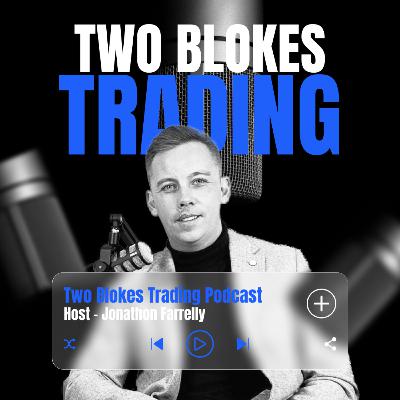
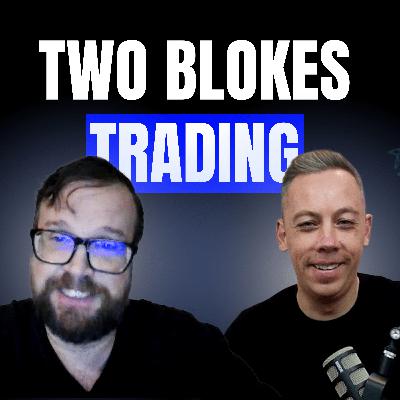
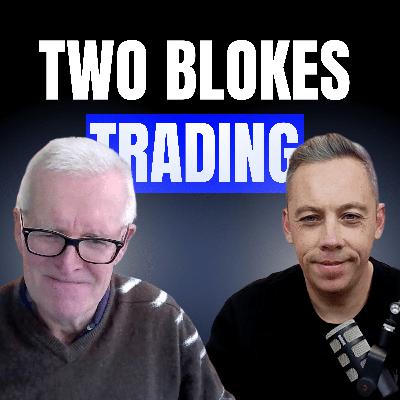
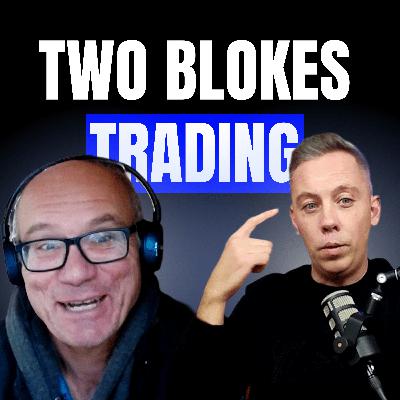
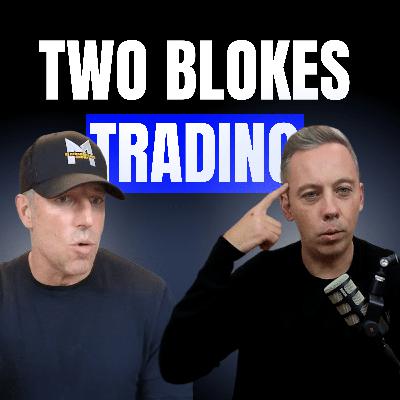
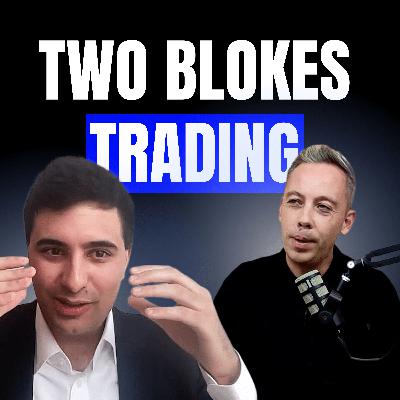
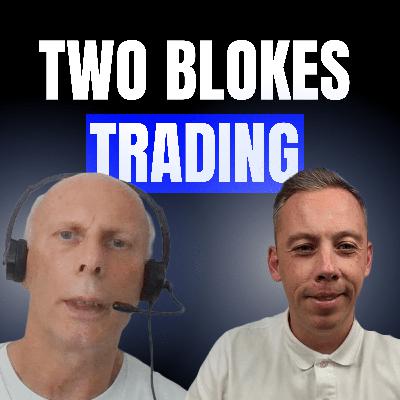
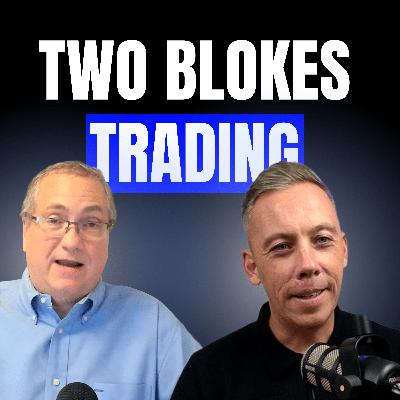
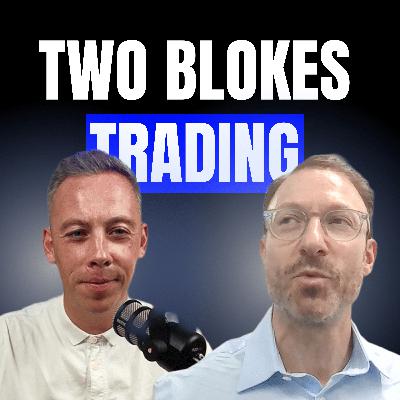
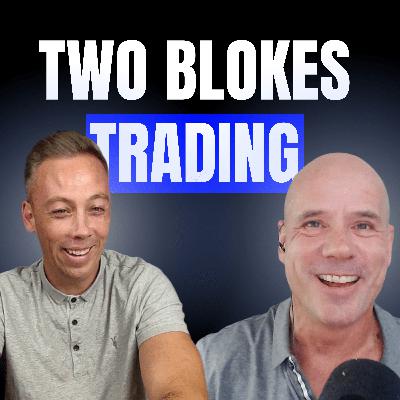
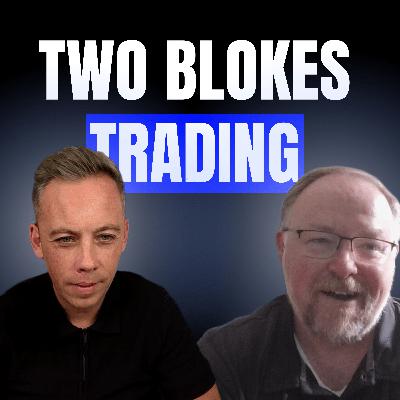
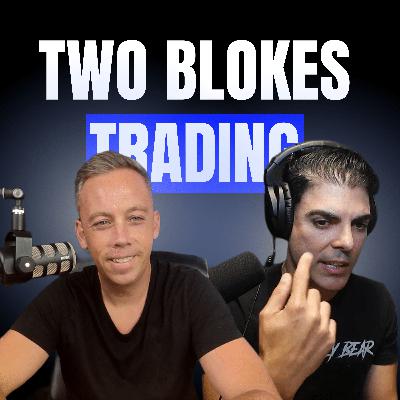
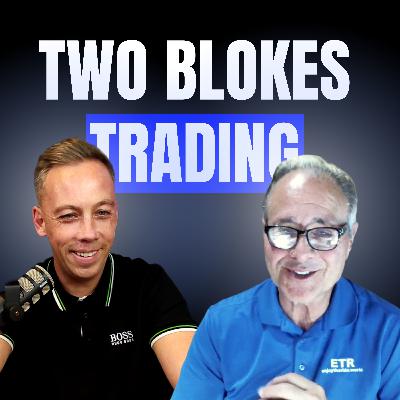
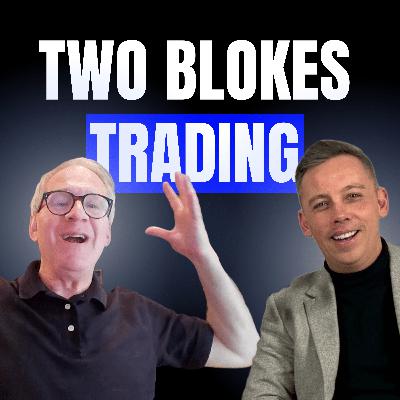
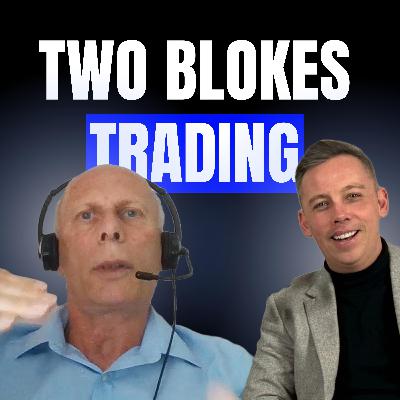
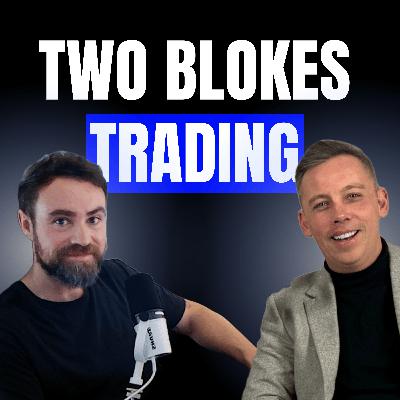
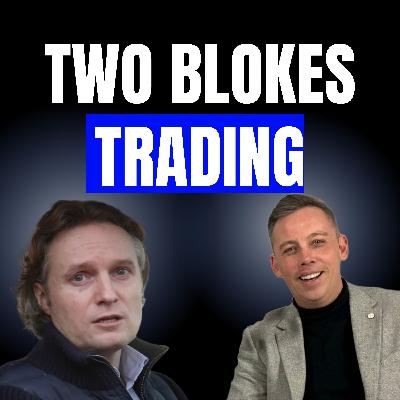



The article explains how using Bollinger Bands (BB) together with Relative Strength Index (RSI) can give traders a stronger setup: Bollinger Bands help you spot when price moves outside its normal range (suggesting a potential reversal or strong move), while RSI gives a momentum check (telling you whether the move has strength or is tired). The idea: when price hits a BB extreme and RSI shows over-bought/over-sold or divergence, that combo offers a higher-probability setup than using either indicator https://tradequotex.com/en/unleashing-the-power-of-bb-and-rsi alone.
Amazing! The episode with Charlie Burton is so spot on. everything he says makes sense. 👏🏽 Bravi!
could not hear large parts of conversation, just clicks of mouse and yea and clearing of throat. It was quite a waste of listener's time. turned it off. please fix or do not put this on if this is some trade secret.
sorry to say but do not agree with the risk system described here.
What was the learning to trade? I didn't get anything from this
Did you really fucking beep out the word midget?